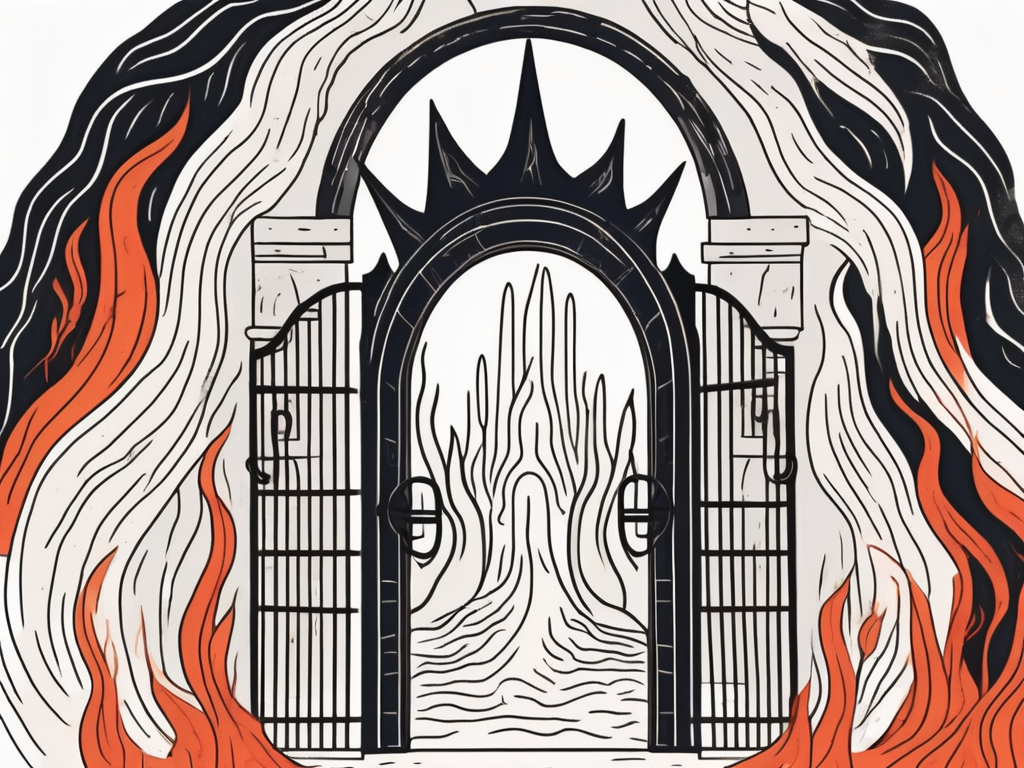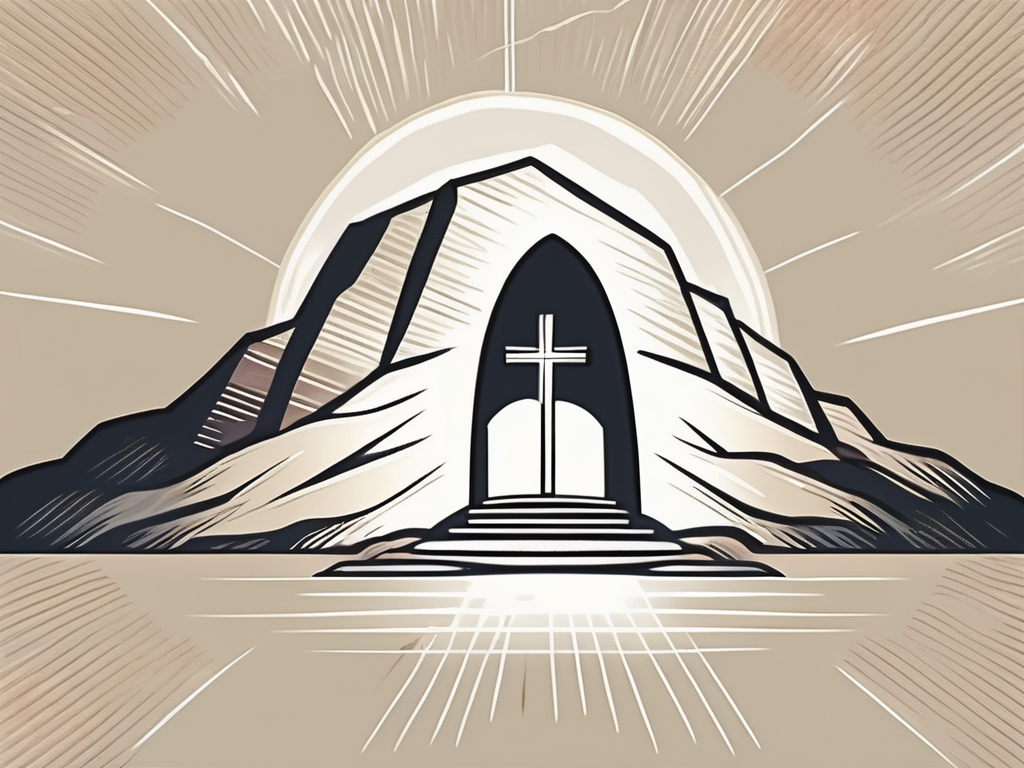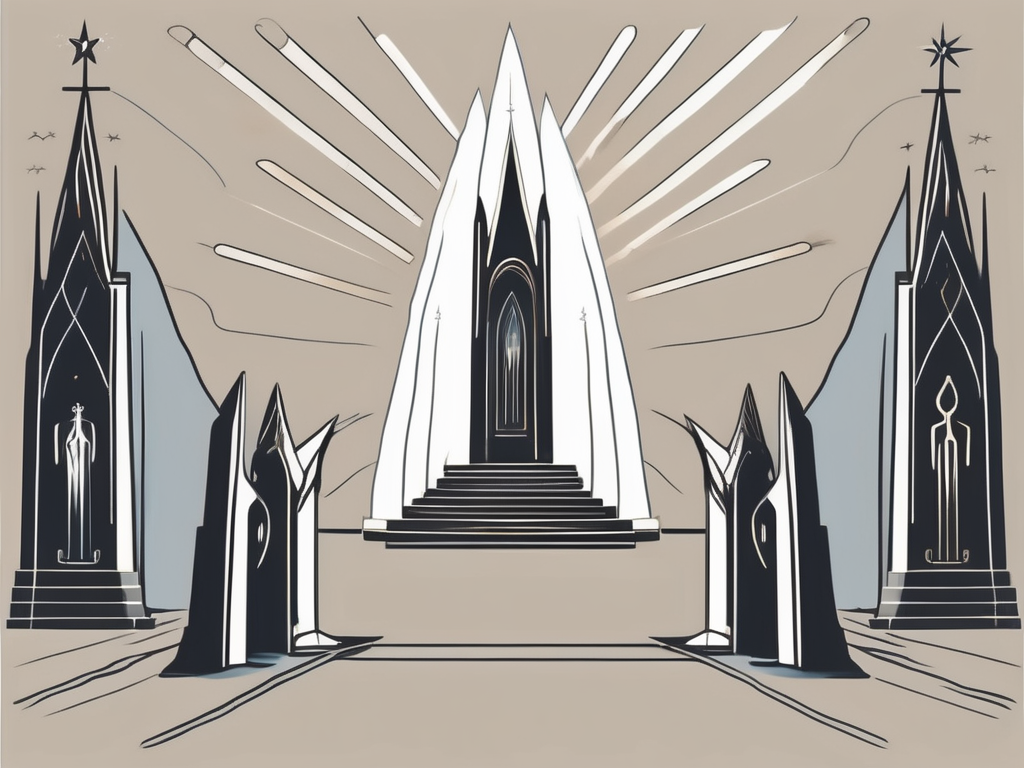Many people are curious about what happens after we die. Is there life after death? And if so, what does the Bible say about it? In this article, we will explore the concept of the afterlife according to Christian beliefs and examine the biblical interpretations of death and the promise of eternal life. We will also delve into the perspectives on life after death in both the Old Testament and the New Testament, as well as discuss the final destinations of heaven and hell. Furthermore, we will touch upon the second coming of Christ and the resurrection of the dead. So, let’s dive in and uncover what the Bible has to say about life after death.
Understanding the Concept of Afterlife in Christianity
The concept of the afterlife holds great significance in Christianity. It is believed that life does not cease after death, but instead continues in another form. Many Christians find comfort and hope in the idea of an afterlife, as it promises eternal communion with God and the opportunity to be reunited with loved ones who have also passed away.
Biblical Interpretations of Death
In the Bible, death is often portrayed as a separation of the soul from the physical body. It is depicted as a transition from earthly existence to a spiritual realm. Various passages in the Bible provide insights into the nature and meaning of death, offering different interpretations of what lies beyond.
One such passage is found in the book of Ecclesiastes, which states, “Then shall the dust return to the earth as it was: and the spirit shall return unto God who gave it” (Ecclesiastes 12:7). This verse suggests that after death, the physical body returns to the earth, while the spirit returns to God. This interpretation highlights the belief that the soul continues to exist after death and is reunited with its creator.
Another significant passage is found in the New Testament, in the Gospel of John. Jesus says, “I am the resurrection, and the life: he that believeth in me, though he were dead, yet shall he live” (John 11:25). This verse emphasizes the belief that through faith in Jesus, believers can experience resurrection and eternal life. It suggests that death is not the end, but rather a gateway to a new and everlasting existence.
The Promise of Eternal Life
One of the central themes in the Bible is the promise of eternal life. It is believed that through faith in Jesus Christ, believers can attain salvation and experience everlasting life in the presence of God. This promise offers hope and reassurance, assuring Christians that death is not the end but rather the beginning of a new and glorious existence.
Throughout the Bible, there are numerous passages that speak of this promise. In the Gospel of John, Jesus declares, “For God so loved the world, that he gave his only begotten Son, that whosoever believeth in him should not perish, but have everlasting life” (John 3:16). This verse highlights the belief that through faith in Jesus, believers can have eternal life and escape the perishing of death.
Furthermore, the Apostle Paul writes in his letter to the Romans, “For the wages of sin is death; but the gift of God is eternal life through Jesus Christ our Lord” (Romans 6:23). This passage emphasizes that eternal life is a gift from God, made possible through Jesus Christ. It underscores the idea that through faith and acceptance of Jesus as Lord, believers can receive the gift of eternal life.
Overall, the concept of the afterlife in Christianity is deeply rooted in the belief in eternal life through faith in Jesus Christ. It offers hope, comfort, and reassurance to believers, assuring them that death is not the end but rather the beginning of a new and glorious existence in the presence of God.
Old Testament Perspectives on Life After Death
In the Old Testament, the Hebrew concept of the afterlife is often referred to as “Sheol.” Sheol is a place of darkness, where the souls of the deceased reside. It is not explicitly described as a place of punishment or reward, but rather as a realm of shadowy existence.
Sheol, in Hebrew literature, is portrayed as a place where both the righteous and the wicked go after death, regardless of their actions in life. It is a destination for all souls, a place where they await their final judgment. The concept of Sheol is intriguing, as it suggests that death is not the end, but rather a transition to another realm.
Within the Old Testament, there are hints of a more hopeful view of the afterlife in certain passages, suggesting the possibility of a future resurrection. These glimpses of hope offer a glimmer of light in the midst of the darkness of Sheol.
Sheol: The Hebrew Concept of the Afterlife
Sheol, as mentioned earlier, is a mysterious place. It is a realm where the souls of the departed exist, but their exact state is not clearly defined. Some scholars believe that Sheol is a place of rest, where the souls find solace and peace after the trials of life. Others argue that it is a place of waiting, where the souls anticipate their final judgment and ultimate destiny.
Interestingly, Sheol is not limited to the wicked or the righteous. It is a destination for all souls, regardless of their moral standing in life. This concept challenges the notion of a binary afterlife, where the righteous are rewarded and the wicked are punished. Instead, Sheol suggests a more egalitarian view, where all souls are equal in their existence beyond death.
Resurrection in the Old Testament
Although the concept of resurrection is not explicitly developed in the Old Testament, there are glimpses of this idea in various passages. These glimpses offer a tantalizing possibility of life beyond Sheol, where the souls are not confined to a shadowy existence but are raised to a new and transformed state.
One such passage that hints at resurrection is found in the book of Daniel. In Daniel 12:2, it is written, “And many of those who sleep in the dust of the earth shall awake, some to everlasting life, and some to shame and everlasting contempt.” This verse suggests a future resurrection, where some will be raised to eternal life, while others will face everlasting contempt.
This idea of resurrection opens up a realm of possibilities for the afterlife. It offers hope for those who have lived righteous lives, assuring them that their actions will not go unnoticed or unrewarded. It also serves as a warning to the wicked, reminding them that their deeds will have consequences even beyond death.
While the concept of resurrection in the Old Testament is not fully developed, these glimpses provide a foundation for future theological developments. They invite further exploration and contemplation, encouraging individuals to ponder the mysteries of life after death and the ultimate fate of the soul.
New Testament Views on Life After Death
The New Testament brings forth a clearer understanding of life after death, primarily through the teachings of Jesus Christ and the insights of the Apostle Paul. These teachings offer profound insights into the nature of the afterlife and the hope that Christians can embrace.
Jesus Christ’s Teachings on Eternal Life
Jesus often spoke about the concept of eternal life, emphasizing the importance of faith in Him as the pathway to salvation. He proclaimed Himself as “the way, the truth, and the life” and promised that those who believe in Him will have eternal life and be raised on the Last Day.
One of the most significant teachings of Jesus regarding eternal life is found in the Gospel of John. In John 3:16, Jesus declares, “For God so loved the world that he gave his one and only Son, that whoever believes in him shall not perish but have eternal life.” This verse encapsulates the essence of Jesus’ message, highlighting the profound love of God and the gift of eternal life through faith in Him.
Furthermore, Jesus often used parables to illustrate the concept of the afterlife. In the parable of the rich man and Lazarus (Luke 16:19-31), Jesus portrays a rich man who neglects the poor beggar Lazarus. After their deaths, Lazarus is comforted in the bosom of Abraham, while the rich man is tormented in Hades. This parable emphasizes the eternal consequences of one’s actions and the reality of life after death.
Apostle Paul’s Insights on Afterlife
Writing to the early Christian communities, the Apostle Paul highlighted the resurrection of the dead and the transformation of mortal bodies into glorified ones. His teachings emphasized the victory over death through Jesus Christ and the hope of being reunited with loved ones in the presence of God.
In his first letter to the Corinthians, Paul addresses the topic of resurrection, stating, “For as in Adam all die, so in Christ all will be made alive” (1 Corinthians 15:22). Paul explains that just as all humanity inherited death through Adam, all believers will experience resurrection and eternal life through Christ. This teaching brings hope and assurance to Christians, assuring them that death is not the end but a gateway to eternal life in the presence of God.
Paul also emphasizes the transformation of mortal bodies into glorified ones. In his letter to the Philippians, he writes, “But our citizenship is in heaven. And we eagerly await a Savior from there, the Lord Jesus Christ, who, by the power that enables him to bring everything under his control, will transform our lowly bodies so that they will be like his glorious body” (Philippians 3:20-21). This transformation signifies the complete redemption of believers, where they will be freed from the limitations and imperfections of their earthly bodies and be made perfect in the likeness of Christ.
Overall, the New Testament provides a rich and comprehensive understanding of life after death. Jesus’ teachings on eternal life and Paul’s insights on resurrection and transformation offer believers hope, assurance, and a glimpse into the glorious future that awaits them in the presence of God.
Heaven and Hell: The Final Destinations
In the Bible, heaven and hell are depicted as the final destinations that await individuals after death. These contrasting realms are characterized by their distinct nature and eternal implications.
Biblical Descriptions of Heaven
Heaven is often described in the Bible as a place of unimaginable beauty, peace, and joy. It is depicted as the dwelling place of God, where believers will experience perfect communion with Him for eternity. The descriptions of heaven offer solace and inspire believers to live in anticipation of this future glory.
Understanding Hell in the Bible
Hell, on the other hand, is portrayed as a place of punishment and separation from God. It is described as a realm of everlasting torment for those who reject God’s grace and choose to live in rebellion. The concept of hell serves as a reminder of the seriousness of sin and the need for repentance.
The Second Coming of Christ and the Resurrection of the Dead
The Bible speaks of the second coming of Christ and the resurrection of the dead as significant events that will mark the culmination of human history and the final judgment.
The Rapture: A Biblical Overview
Many Christians believe in the concept of the rapture, which refers to the anticipated event when believers will be caught up in the air to meet Jesus Christ. This event is associated with the second coming of Christ and is described as a moment of great transformation and reunion.
Judgment Day: The Final Reckoning
The Bible speaks of a final judgment day when all individuals will be held accountable for their actions and beliefs. This day will mark the ultimate separation between the righteous and the wicked, with eternal rewards or punishments being granted accordingly.
In conclusion, the Bible provides various perspectives on life after death, offering hope, comfort, and warnings. While some aspects of the afterlife remain mysterious and beyond our comprehension, the Scriptures guide believers to trust in God’s promises, embrace the teachings of Jesus Christ, and live in anticipation of the eternal life that awaits. As we reflect on these biblical truths, may we find peace and assurance in the hope of a glorious future beyond the confines of this earthly existence.












